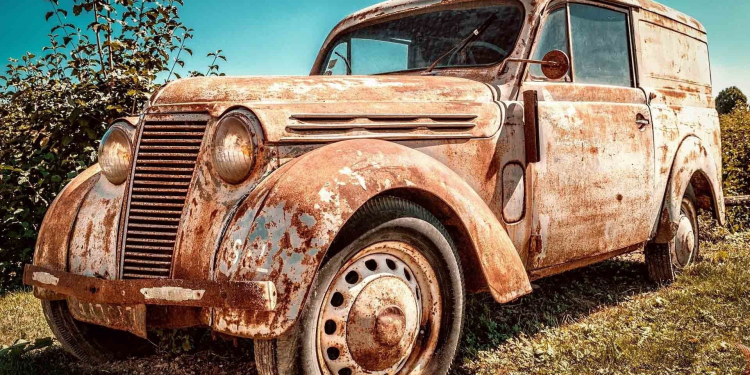I have an old friend – I guess all of the are old now – who helps us at harvest driving a truck. He commutes to our farm from about 50 miles away, but this year especially, we enjoy having an exscuse to get together. For the last few years, he drove a Prius, but he decided that really wasn’t an appropriate ride for truck driver, so he traded for this pickup. When he first arrived this fall, I admired the new vehicle, and noted how great it looked. When asked to guess how many miles on it, I estimated about 40K. I was close – it was 140K. We both marveled at how we used to get nervous when a car went over 100,000 miles, but today’s vehicles are just getting started then.
In fact, the U.S. fleet age – that’s all the cars and trucks on the road – keeps climbing and setting records. It’s approaching 12 years old – and that’s the average, remember. This shouldn’t have been a surprise for someone who has three 15+ year-old grain trucks, but I had to adjust my picture of what Americans are driving. Gripe all you want about vehicle prices, but with even modest care and reasonable driving, we’re getting more good years from them than I ever thought possible. There are doubtless many reasons, most obviously better construction and more reliable technology, but maybe some other things have changed since getting a new car was a big event.
One factor could be the fact car styling and design doesn’t change much. There is less sales hype in September because the 2021 model looks an awful lot like the 2020, or even the last 5 years. Drive by the school around 3 pm. And it looks like a silver mini-van convention. And few farmers can peg the year of even the most popular pickups.
But there is another trend that could raise the fleet age even faster – fewer miles driven. (Be careful with this chart, the y-axis doesn’t start at zero) I’ll try to keep updated on this, but many industry watchers don’t expect our total vehicle miles to ever resume its up trend, even if it does recover. We could be experiencing another “peak” event. While it could be I’m just noticing them more, we seem to be at multiple inflection points for our economy and culture. Agriculture will be impacted by both.





